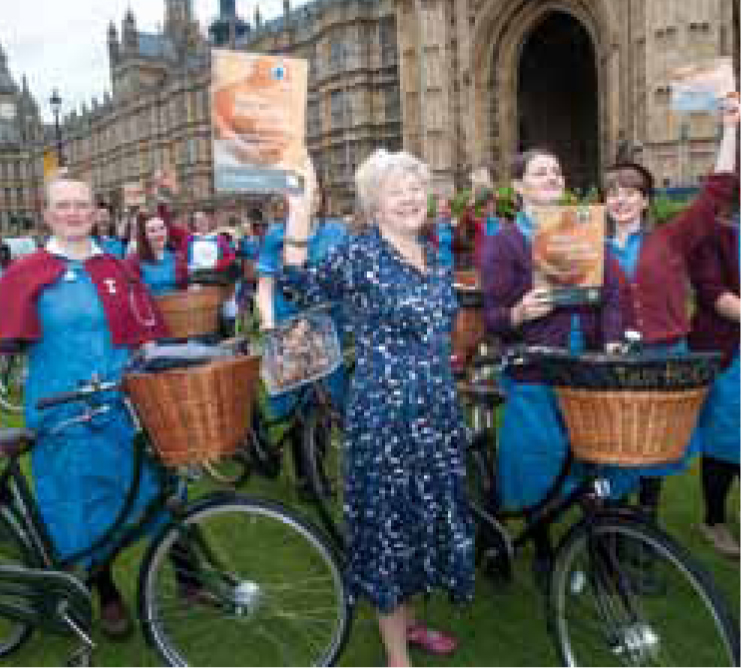I have been President of the Royal College of Midwives (RCM) for almost 3 years. During that time I have travelled to all parts of the UK and all over the world clocking up thousands of miles. I have met many midwives and others involved in maternity care, talking with them in health services, universities, public places, and through social media. I've met hundreds of people, and learned so much from the journey.
First, I want to say just how much midwives, maternity support workers and others involved in the maternity services have to be proud of. Despite the intense pressure we are all working under, with care becoming more complex than it has ever been, and many services working beyond capacity with too few midwives—not only is good care being provided but new services are being developed and established.
I have seen so much inspiring and innovative work, but only have space to draw on a few examples:

When I stood for election I promised to listen to and talk with midwives wherever they are. As well as visits, I started to use social media as a means of communication during my election campaign. Now through Twitter and Facebook I am part of a vibrant community of information, idea-sharing and support.
Meeting student midwives, speaking at student society events, joining students in their campaigns, such as the ‘Call the Midwife’ bike ride around Westminster on ‘vintage’ bikes and arriving on College Green Westminster to draw attention to the petition for more midwives (see picture above) has been a special pleasure for me.
Students are managing the challenging demands of course work and clinical placements, as well as family life, and are developing student societies that are setting a high bar for learning communities. These students are real leaders.
Our achievements are many, but now we need to build and learn from our successes, to spread our success to all women.
The recently published National Institute for Health and Care Excellence intrapartum guidelines (NICE, 2014) require that we provide woman-centred care not just to a few, but to all women. At present only a minority of women have a genuine choice of place of birth, with few women having access to midwife-led continuity of care. There is too much variation in access to, what evidence tells us is, the most effective form of care.
Midwifery associations like the RCM are crucial to the work that lie ahead of us. We have a very powerful midwifery profession here in the UK, and have the potential to achieve the change that is required.
From my travels as President I have a clear view of what happens in countries with extreme rates of intervention and dehumanised care, where midwifery as a profession has been lost. I have learned just how important established midwifery is.
The Better Births initiative being developed by the RCM is aimed at giving every woman better care and a better experience. The initiative will provide support for the development of continuity of care and carer for all women, reducing the effects of inequalities and supporting normal births and the normalisation of all births.
Over my 3 years as President of the RCM I have been privileged to get an oversight of the state of midwifery at home and globally. We have achieved much, but now need to use our strengths, the developments achieved, to give all women access. We need to go from strength to strength so that every woman, every baby, every family gets the best midwifery care. Here in the UK, in particular, we are in a strong position to do so.

